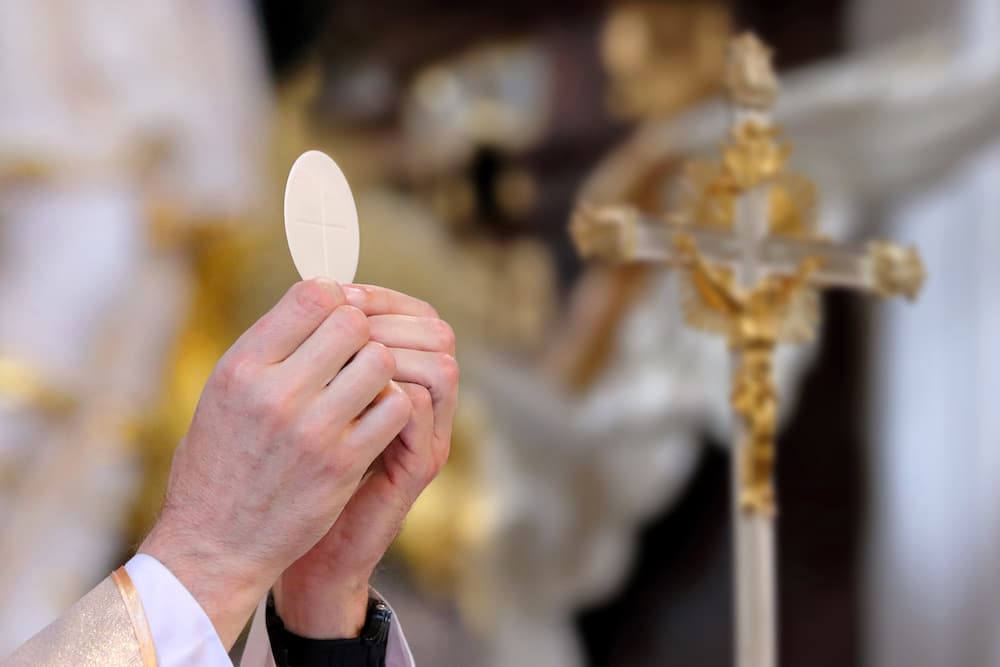Let’s be clear here. To speak of God’s “immutability” doesn’t mean he’s unable to be silenced by clicking a remote. It means he never changes. Then, too, he’s never “remote,” but that’s a different topic for a different article.
You may have noticed — if you’ve been alive for more than, oh, three or four years — that some things change. And if you’ve been around for 30 or 40, everything changes. Or so it seems.
You’re not a kid anymore. You have big-boy or big-girl responsibilities and, with 40 candles on your birthday cake (a box of 24 plus almost a whole second box), there are some “friends” and family members who begin pointing out you are now “middle-aged.” (Forty to 60 being a commonly accepted range, except by 40-year-olds.)
Take heart, you who have recently reached or are nearing the “Big Four Zero.” Those who have moved on — have sped on — to 60, 70, 80-plus offer consoling words when it comes to change: “You ain’t seen nothin’ yet.”
Divine name
What does this have to do with God? Consider what Moses found out:
“But Moses said to God, ‘Who am I that I should go to Pharaoh and bring the Israelites out of Egypt?’
“God answered: ‘I will be with you; and this will be your sign that I have sent you. When you have brought the people out of Egypt, you will serve God at this mountain.’
|
The world is marked with the imprint of mutability, of a beginning and an end in time; and with a cogent and irresistible voice it bespeaks a Creator, completely distinct from the world itself, and by his very nature immutable.
— Pope Pius XII, Address to Italian Catholic Action, Sept. 12, 1948
|
“‘But,’ said Moses to God, ‘if I go to the Israelites and say to them, “The God of your ancestors has sent me to you,” and they ask me, “What is his name?” what do I tell them?’
“God replied to Moses: ‘I am who I am. Then he added: This is what you will tell the Israelites: I Am has sent me to you.’ God spoke further to Moses: ‘This is what you will say to the Israelites: The Lord, the God of your ancestors, the God of Abraham, the God of Isaac, and the God of Jacob, has sent me to you. This is my name forever; this is my title for all generations'” (Ex 3:11-15).
“Hello, I Am. I’m pleased to meet you.” Even more pleased that the God of the Old Testament, of the New Testament, the early Church, the Middle Ages (here making no reference to birthday cakes) and the 21st century isn’t just “the same God” but “the exact same God.”
Changing creation
To use a modern adage: Why mess with perfection? To get more theological: “You are the life of souls, life of lives, livingness itself, and you shall not change, O life of my soul.”
So said, so prayed, St. Augustine in the fifth century. And he taught: “God alone is immutable; and whatever things he has made, being from nothing, are mutable.”
| Affirming Divine Immutability |
|---|
| If you do want to board ship exploring the nature of God, the author recommends a book by his theologian brother, who explains divine immutability as follows:In the theology of St. Thomas Aquinas, the unchanging God revealed in Scripture, attested in the tradition of the Church, and established through philosophical arguments is consistently identified as the one who “so loved the world that he gave his only Son” (Jn 3:16).
The loving and provident God, the source of “every perfect gift,” is also the immutable God “in whom there is no variation or shadow due to change” (Jas 1:27). In affirming divine immutability, Aquinas reflects on the constant teaching of the Church, which from its earliest pronouncements always maintained that the God of love is unchanging. He echoes voices of the past, such as St. Augustine, who prayed to the God who is “unchangeable and yet changing all things.” He anticipates voices of the future. St. Teresa of Avila, the sixteenth-century Spanish mystic and Doctor of the Church would speak of God as one who “does not change” and “alone suffices.” Elizabeth of the Trinity, the French Carmelite contemplative of the last century, would pray to God as “my Unchanging One.” And Sigrid Undset, the twentieth-century Norwegian novelist, would describe herself as “a pilgrim of the absolute” in search of “that which in no way every changes.” — Michael J. Dodds, O.P., “The Unchanging God of Love: St. Thomas Aquinas & Contemporary Theology on Divine Immutability” (CUA Press, $34.95) |
Things like you and everyone and everything around you. Everything except him.
From way back in B.C. time, that is, the Baltimore Catechism in the first grade – “Who made you? God made me.” — to the Catechism of the Catholic Church:
“Creation has its own goodness and proper perfection, but it did not spring forth complete from the hands of the Creator. The universe was created ‘in a state of journeying’ (in statu viae) toward an ultimate perfection yet to be attained, to which God has destined it. We call ‘divine providence’ the dispositions by which God guides his creation toward this perfection:
“By his providence God protects and governs all things which he has made, ‘reaching mightily from one end of the earth to the other, and ordering all things well.’ For ‘all are open and laid bare to his eyes,’ even those things which are yet to come into existence through the free action of creatures” (No. 302).
Yes, the CCC is a bit more nuanced than the B.C. But, of course, you couldn’t handle the latter when you were 6. Since then you’ve — go ahead, say it — changed.
And who hasn’t? Right! The One who never has and never will.
‘Headin’ for heaven’
Now we — both you (probably) and the author of this article (for sure) — find ourselves at the point where scholars, intellectuals, philosophers, theologians and mystics sail off on a voyage that explores the nature of God and discover stuff (that can’t be the right word) about God that leaves most of us completely lost.
Now out on the ship or back on the dock, each of us is moving — as the Catechism points out — “‘in a state of journeying’ (in statu viae) toward an ultimate perfection yet to be attained, to which God has destined it” (No. 302).
Headin’ for heaven, you were made to change by a God who never changes, and this is not only a really big deal, it is a very good deal. How so? Consider:
At times you may more strongly feel the presence of God. At other times, he hasn’t moved. He hasn’t changed. You change, things change, life changes, faith can pale. The virtues of hope and love within you can waver and ebb and flow but God is immutable. Sometimes you’re in a state of sin, sometimes in a state of sanctifying grace. Either way: God is God. With you. Right here, right now.
The God who chose Abraham and Moses, the God who chose Mary and Joseph, is the same God who chose you for a particular and unique role in his plan. The same God who continues to choose you as that role develops and you mature.
When you change, in a good way, in a holy way, you’re becoming more and more like God, which is exactly what he’s wanted for you since before the beginning of time. And what he wants for you forever.





